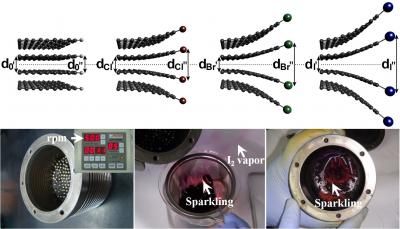Bayer significantly strengthens its presence in China
Startup of 350,000 tons/year MDI train
Bayer MaterialScience has successfully started production at its new 350,000 tons/year diphenylmethane diisocyanate (MDI) complex at the Bayer Integrated Site Shanghai (BISS). The new world-scale plant is the largest MDI facility of its kind in the world, according to the company. Furthermore, the company has now broken ground for a 250,000 tons/year toluene Diisocyanate (TDI) plant at BISS which is scheduled to come on stream in 2010. “With these projects Bayer MaterialScience is emphasizing its commitment to the growth markets in China and the whole Asia Pacific region. Innovative process technologies strengthen our cost leadership in isocyanate production and thus our competitiveness,” said Patrick Thomas, Chairman of the Board of Management of Bayer MaterialScience.
The new TDI facility in Shanghai features the modern Gas Phase Process. This enables energy savings of up to 60 percent compared with a conventional plant of the same size. The new process technology uses up to 80 percent less solvent, and cuts investment costs for this type of large-scale facility by some 20 percent. “This enables us to further consolidate our leading position on the world market for polyurethanes with optimized cost structures,” explained Patrick Thomas.
In addition, the oxygen depolarized cathode (ODC) technology used to recycle chlorine at the Bayer Integrated Site Shanghai yields 30 percent savings in energy use compared with conventional technology. Thomas pointed out how the company is contributing to China’s efforts to improve the energy-efficiency of its industries: “By using advanced technology and an energy-efficient setup at the site, the Bayer Integrated Site Shanghai is able to save approximately 100 megawatts compared with conventional production plants. These savings can supply up to 10,000 homes,” he said.
Other news from the department manufacturing

Get the chemical industry in your inbox
By submitting this form you agree that LUMITOS AG will send you the newsletter(s) selected above by email. Your data will not be passed on to third parties. Your data will be stored and processed in accordance with our data protection regulations. LUMITOS may contact you by email for the purpose of advertising or market and opinion surveys. You can revoke your consent at any time without giving reasons to LUMITOS AG, Ernst-Augustin-Str. 2, 12489 Berlin, Germany or by e-mail at revoke@lumitos.com with effect for the future. In addition, each email contains a link to unsubscribe from the corresponding newsletter.




























































